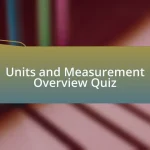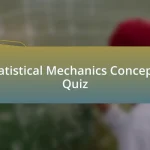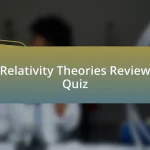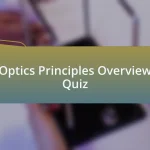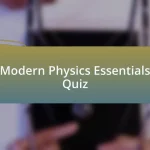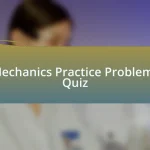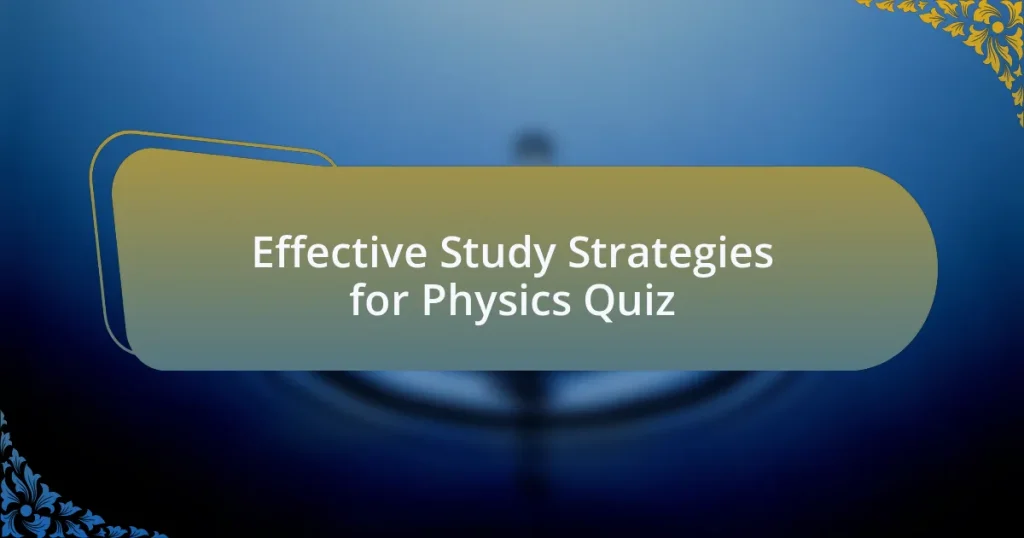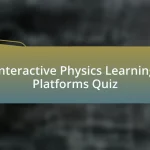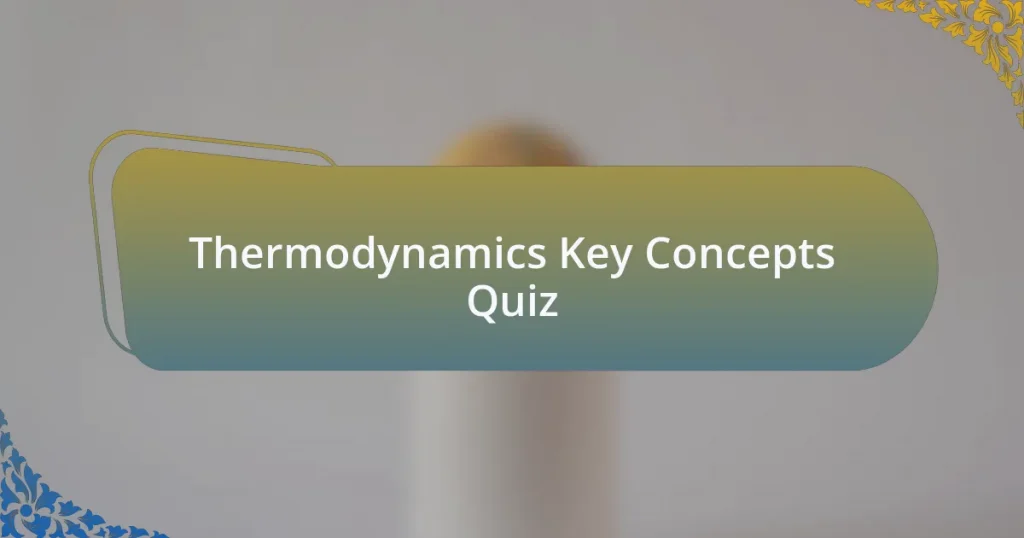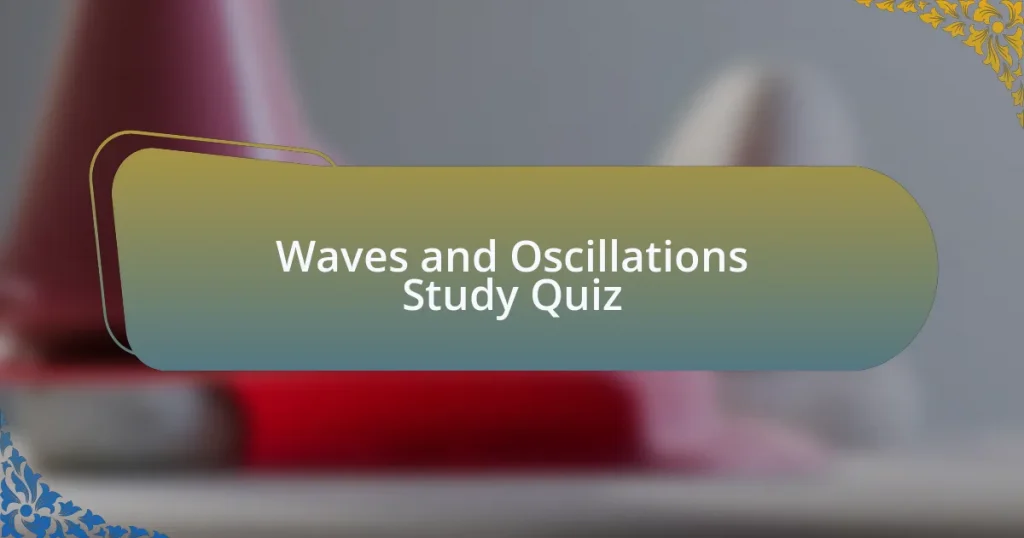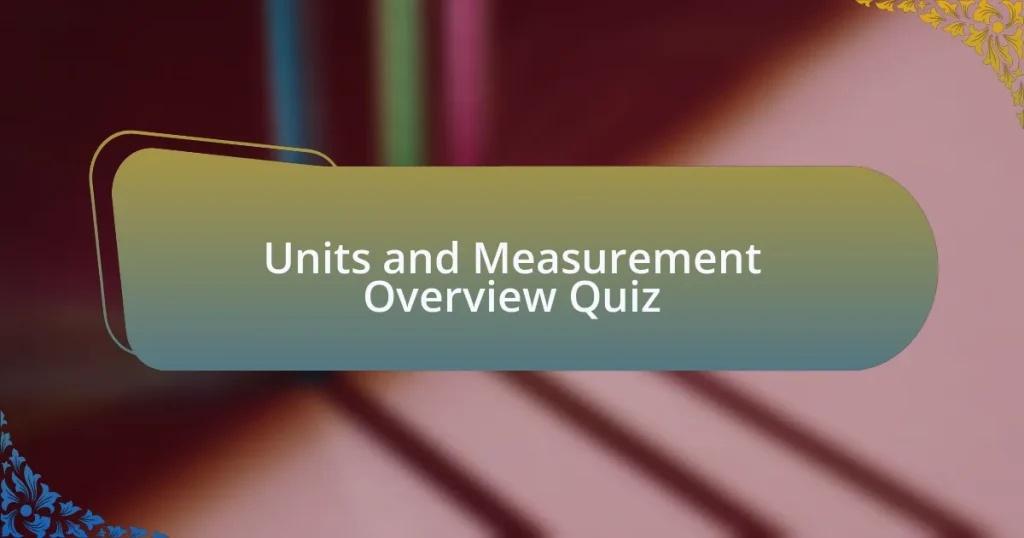Start of Effective Study Strategies for Physics Quiz
1. What is the best way to learn physics?
- You learn physics through listening to lectures only.
- Watching videos is the only effective way to learn physics.
- Physics is best learned by memorizing equations.
- You learn physics by teaching others.
2. How should you approach reading a physics textbook?
- Read actively with questions in mind, jotting down notes and questions as you go.
- Only read the examples and skip the theory sections entirely.
- Skim quickly to get a general sense of the content without taking notes.
- Focus solely on equations and ignore explanations and concepts.
3. What should you do if you fall behind in your physics studies?
- Cram everything the night before the exam.
- Prioritize recovery by reviewing older content daily.
- Ignore it and focus on new material only.
- Give up and accept failure in the subject.
4. How can you improve your math skills for physics?
- Memorize formulas without understanding their application.
- Practice regularly and review older math problems.
- Ignore basic concepts to focus on advanced topics.
- Avoid difficult problems to reduce frustration.
5. What is the importance of problem-solving in physics?
- Problem-solving is unimportant as it doesn`t relate to theoretical concepts.
- Problem-solving is necessary only for advanced topics, not for basic physics.
- Problem-solving is solely about memorizing formulas without understanding.
- Problem-solving is crucial as it involves applying fundamental principles to solve problems.
6. How should you prepare for a physics exam?
- Review notes, recheck the course outline, reread homework solutions, and review assigned chapters.
- Memorize all formulas without understanding their applications.
- Cram the night before the exam without prior preparation.
- Skip reading the textbook and rely only on practice problems.
7. What is the role of conceptual thinking in physics?
- Conceptual thinking helps break down problems into basic steps, focusing on fundamental principles.
- Conceptual thinking hinders the ability to apply mathematical formulas directly.
- Conceptual thinking is irrelevant for solving practical problems in physics.
- Conceptual thinking complicates the process of finding solutions to physics problems.
8. How can you stay focused while studying physics?
- Dedicate uninterrupted daily time to reviewing, consolidating notes, and practicing problem sets.
- Study in short bursts of 15 minutes with distractions.
- Memorize formulas without understanding concepts.
- Only read the textbook without taking notes.
9. What is the significance of mastering the basics in physics?
- Mastering the basics complicates the study of physics concepts.
- Mastering the basics is not necessary if you are good at math.
- Mastering the basics provides a solid foundation for understanding more complex concepts.
- Mastering the basics only takes time away from learning advanced topics.
10. How can you simplify complex physics problems?
- Ignore unnecessary information and jump to the solution immediately.
- Simplify the situation by breaking down the problem into manageable parts and focusing on the essential information.
- Solve the problem using any complex formulas available without analysis.
- Memorize physics equations and try to apply them directly without understanding.
11. What is the benefit of using drawings in physics study?
- Drawings complicate the understanding of physics concepts rather than simplify them.
- Drawings distract from the essential equations needed for solving problems.
- Drawings help illustrate concepts, making them easier to understand and remember.
- Drawings only serve as art and do not contribute to learning physics.
12. Why is it important to review older content in physics?
- It wastes time that could be spent on advanced topics.
- It complicates the study routine unnecessarily.
- Reviewing older content helps prevent forgetting previously learned material.
- It distracts from learning new concepts.
13. How can you identify required information in a physics problem?
- Focus only on the final answer without looking at the process.
- Memorize all the equations without understanding their meanings.
- List all the information in the problem without analyzing it.
- Identify required information by writing down relevant equations and constants and assigning each piece of information to the appropriate variables.
14. What is the best way to double-check answers in physics problems?
- Check answers by randomly guessing alternatives.
- Verify answers by discussing them with classmates only.
- Double-check answers by re-doing the calculations and using common sense to relate the problem to real-life scenarios.
- Confirm answers by only focusing on the final result without revisiting the work.
15. How can you get help with learning physics?
- Seek help from teachers, tutors, study groups, and online resources.
- Rely solely on textbooks and lectures.
- Focus exclusively on past exam papers.
- Watch only YouTube videos without practice.
16. What is the importance of active reading in physics?
- Active reading focuses solely on reading the textbook many times without engagement.
- Active reading means skimming the text for keywords and definitions only.
- Active reading involves generating questions and taking notes, ensuring you understand the material.
- Active reading allows you to memorize formulas without context or understanding.
17. How can you manage your time effectively during a physics exam?
- Answer all questions randomly to cover more ground quickly.
- Spend excessive time on the first few questions before moving on.
- Skip complex problems entirely to focus only on easier ones.
- Leave time to double-check answers and manage your time to ensure you complete all questions.
18. What is the role of practice problems in physics study?
- Practice problems are only useful for memorizing formulas and equations.
- Practice problems help reinforce understanding of concepts and prepare for exams.
- Practice problems are unnecessary if you understand the theory well.
- Practice problems distract from learning important concepts in physics.
19. How can you ensure you understand the point of physics demonstrations?
- Write down everything said without thinking critically.
- Assume you understand everything by just observing.
- Pay attention to demonstrations and ask questions to clarify any misunderstandings.
- Only watch the demonstrations without engagement or inquiry.
20. What is the benefit of working with others in physics study?
- Collaboration is unnecessary and wastes time that could be spent on individual practice.
- Working with others helps explain concepts to others and receive explanations, enhancing understanding.
- Group study often leads to confusion and misunderstanding of concepts among peers.
- Studying alone ensures you develop independent problem-solving skills without distractions.
21. How can you stay organized while studying physics?
- Wait until the last minute to cram before exams.
- Use a study routine that includes reviewing notes, practicing problems, and preparing for the next class.
- Study only during the night without breaks or plans.
- Rely solely on memorization without understanding concepts.
22. What is the importance of reviewing homework solutions?
- Reviewing homework solutions helps reinforce understanding of underlying principles and laws.
- Reviewing solutions only helps identify errors previously made.
- Reviewing homework solutions makes it harder to prepare for exams.
- Reviewing homework solutions is unnecessary and a waste of time.
23. How can you think conceptually about physics problems?
- Solve problems without considering the physical context or underlying principles.
- Focus on fundamental principles and laws, breaking down problems into basic steps.
- Use only numerical methods to solve problems and ignore conceptual understanding.
- Memorize formulas and equations without understanding their applications.
24. What is the benefit of using flashcards in physics study?
- Flashcards help learn new concepts quickly and easily, especially during revision.
- Flashcards only repeat definitions without providing context.
- Flashcards are ineffective because they only test memorization skills.
- Flashcards confuse students more than they help them understand concepts.
25. How can you ensure you understand the relationships among topics in physics?
- Analyze specific problems in detail, then generalize to more abstract results.
- Memorize formulas without understanding the principles behind them.
- Focus solely on solving practice problems without seeking connections.
- Review textbook chapters repeatedly without applying concepts.
26. What is the importance of using every source of physics help available?
- Ignoring online resources limits your ability to master physics topics.
- Relying solely on class lectures guarantees complete knowledge of physics.
- Using every source of help ensures a comprehensive understanding of physics concepts.
- Focusing only on textbooks provides all necessary insights into physics.
27. How can you simplify a physics problem?
- Increase the problem`s complexity for a better understanding.
- Ignore all equations and focus solely on concepts.
- Read the entire textbook before attempting the problem.
- Simplify by breaking down the problem into smaller, manageable parts.
28. What is the benefit of creating a mind map for physics concepts?
- A mind map helps create connections between relationships of each concept, enhancing understanding.
- A mind map is primarily used for art projects and has no role in physics.
- A mind map complicates the study process by adding unnecessary details.
- A mind map is only for organizing notes without meaning.
29. How can you ensure you understand the significance of basic principles in physics?
- Look for basic principles in the text and problems, ensuring you understand how they apply to specific situations.
- Memorize formulas without understanding their meaning or application.
- Read physics material passively without engaging with the content.
- Focus solely on solving problems without considering underlying principles.
30. What is the importance of reviewing a little each day in physics study?
- Reviewing a little each day helps prevent forgetting previously learned material and keeps you on track.
- It only serves as a distraction and can lead to confusion in your studies.
- It hinders your ability to grasp complex concepts and makes studying less effective.
- Daily review is unnecessary as concepts will be understood naturally over time.
Quiz Completed Successfully!
Congratulations on completing the quiz on Effective Study Strategies for Physics! We hope you found the experience enjoyable and enlightening. Engaging with this material not only tests your knowledge but also reinforces key concepts that can enhance your physics learning journey. Understanding how to study effectively can make a significant difference in mastering complex topics.
Throughout this quiz, you may have discovered various strategies to optimize your study habits. From active recall to spaced repetition, these methods empower you to retain and apply information efficiently. Recognizing the importance of practice problems and collaborative learning can further enhance your understanding of physics. Each question aimed to solidify your grasp of study techniques tailored specifically for physics preparation.
We invite you to explore the next section on Effective Study Strategies for Physics. Diving deeper into this topic will provide you with valuable insights and additional techniques to maximize your study sessions. Whether you’re preparing for exams or seeking to solidify your understanding, this resource is designed to support your physics success. Happy studying!
Effective Study Strategies for Physics
Understanding Core Concepts in Physics
Effective study begins with a solid grasp of core concepts. Students should focus on fundamental principles like Newton’s laws, energy conservation, and electromagnetism. These concepts form the foundation for understanding more complex topics. Mastery means being able to apply these principles to solve various problems. Utilizing textbooks and reputable online resources can enhance comprehension.
Utilizing Problem-Solving Techniques
Physics heavily relies on problem-solving. Students should practice breaking down complex problems into manageable parts. Techniques like drawing diagrams or using dimensional analysis can clarify the steps. Regular practice with textbook exercises and past examination papers enhances your ability to tackle similar questions in tests.
Creating Visual Aids for Complex Topics
Visual aids help in understanding complex physics topics. Diagrams, charts, and graphs can illustrate relationships between variables. Concept maps are effective for summarizing key topics and their connections. Tools like flashcards for definitions or formulas aid memory retention. Engaging with visuals enhances understanding of the material.
Forming Study Groups for Collaborative Learning
Study groups can significantly improve understanding and retention of physics concepts. Discussing topics with peers allows for diverse perspectives and clarifications of doubts. Group study often leads to cooperative problem-solving, where members help each other work through difficult problems. This collaborative effort often deepens understanding.
Implementing Active Recall and Spaced Repetition
Active recall and spaced repetition are effective memorization techniques. Active recall involves testing oneself on the material rather than passively reviewing notes. Spaced repetition distributes practice over time, reinforcing memory. Using apps or flashcards can facilitate this process. Both techniques have been shown to improve long-term retention of information, crucial for success in physics exams.
What are effective study strategies for physics test preparation?
Effective study strategies for physics test preparation include active engagement with the material through problem-solving, conceptual understanding, and regular review. Students should practice problems across various topics to solidify their grasp of concepts like mechanics and electromagnetism. Utilizing resources like textbooks and online platforms can provide diverse problem sets and explanations. Studies show that spaced repetition enhances retention of complex information, making it crucial to revisit topics periodically rather than cramming before tests.
How can students improve their understanding of physics concepts?
Students can improve their understanding of physics concepts by employing inquiry-based learning and collaborative study groups. Discussing problems and concepts with peers allows for different perspectives that can clarify challenging topics. Visual aids like diagrams and simulations can also help illustrate concepts more concretely. Research indicates that teaching a concept to someone else reinforces knowledge and highlights gaps in understanding.
Where can students find reliable resources for studying physics?
Students can find reliable resources for studying physics through academic libraries, online educational platforms, and university course materials. Websites like Khan Academy and MIT OpenCourseWare offer free, high-quality lectures and exercises. Peer-reviewed journals and physics textbooks also provide comprehensive coverage of fundamental topics. According to the American Association of Physics Teachers, access to quality resources significantly facilitates mastery of physics content.
When should students start reviewing for their physics tests?
Students should start reviewing for their physics tests at least four to six weeks prior to the exam date. This timeline allows for in-depth understanding and absorption of material through repeated exposure. Engaging in regular weekly review sessions and gradual practice testing fosters a deeper comprehension of complex topics. Educational psychology research supports that earlier preparation significantly enhances performance and reduces test anxiety.
Who can benefit from using structured study plans for physics?
Students at every level can benefit from using structured study plans for physics. High school and university students often face rigorous curricula that require effective time management. Studies reveal that a well-organized study plan increases accountability and helps track progress. Moreover, tutors and educators can use structured plans to identify areas where students struggle, therefore providing targeted assistance.


